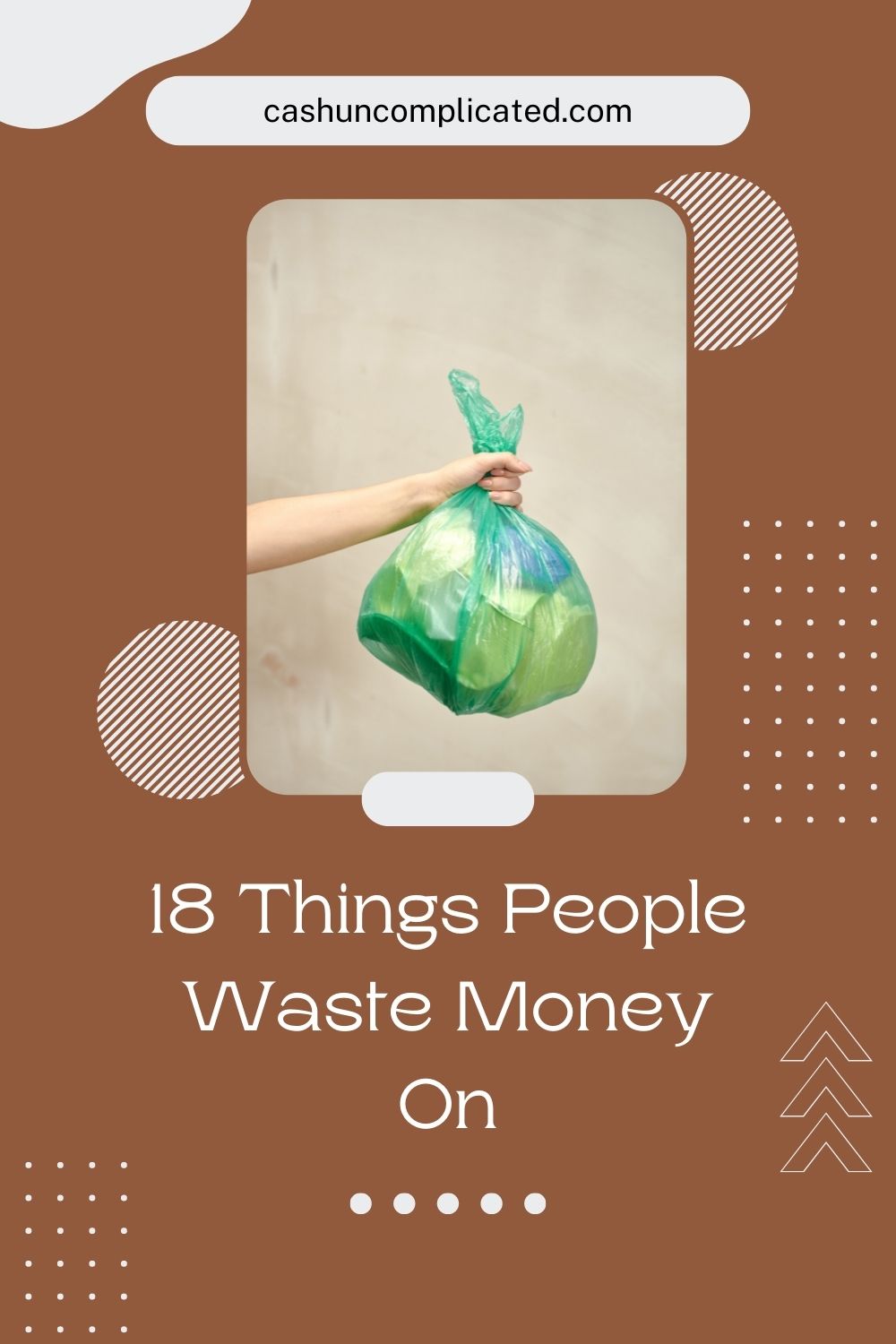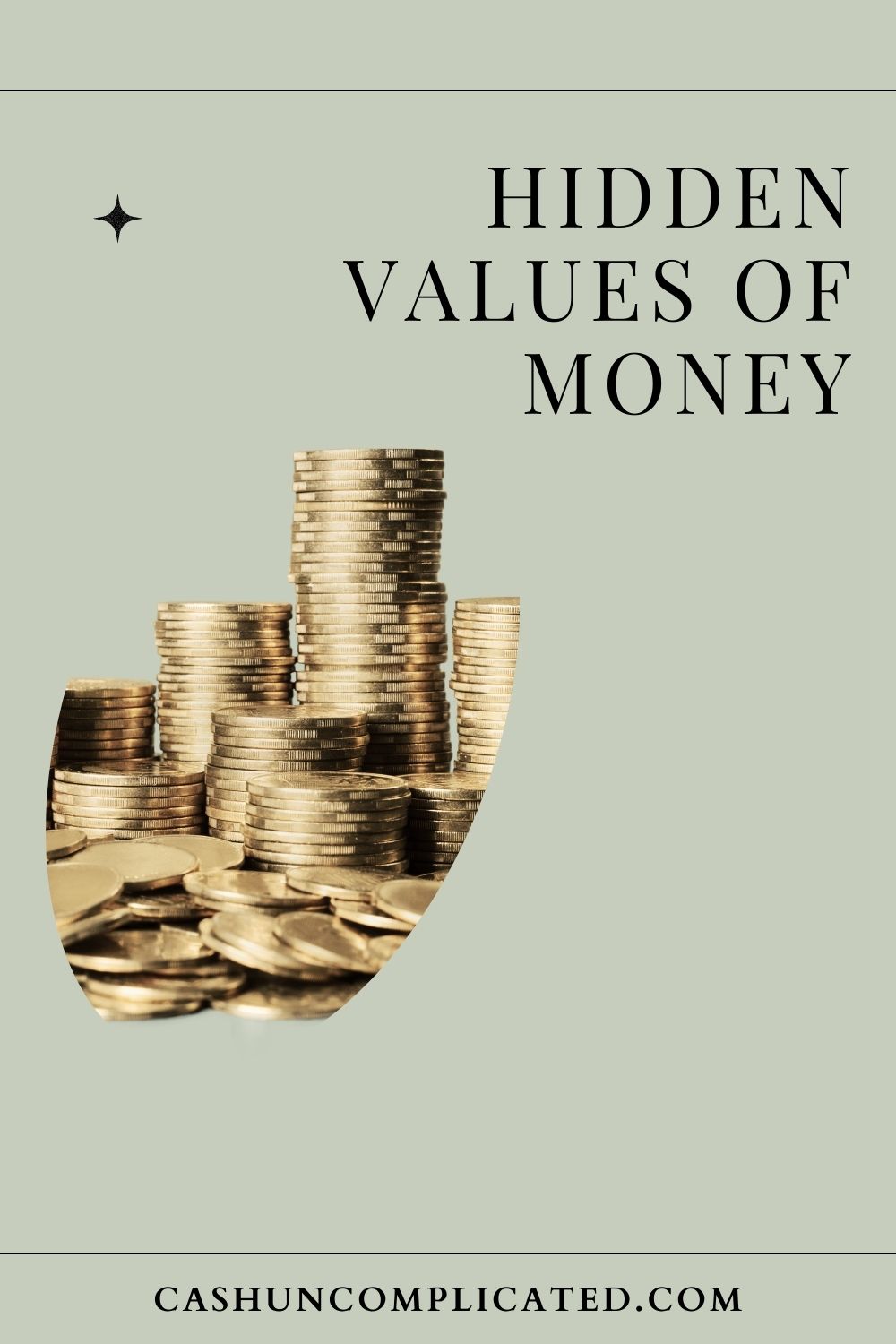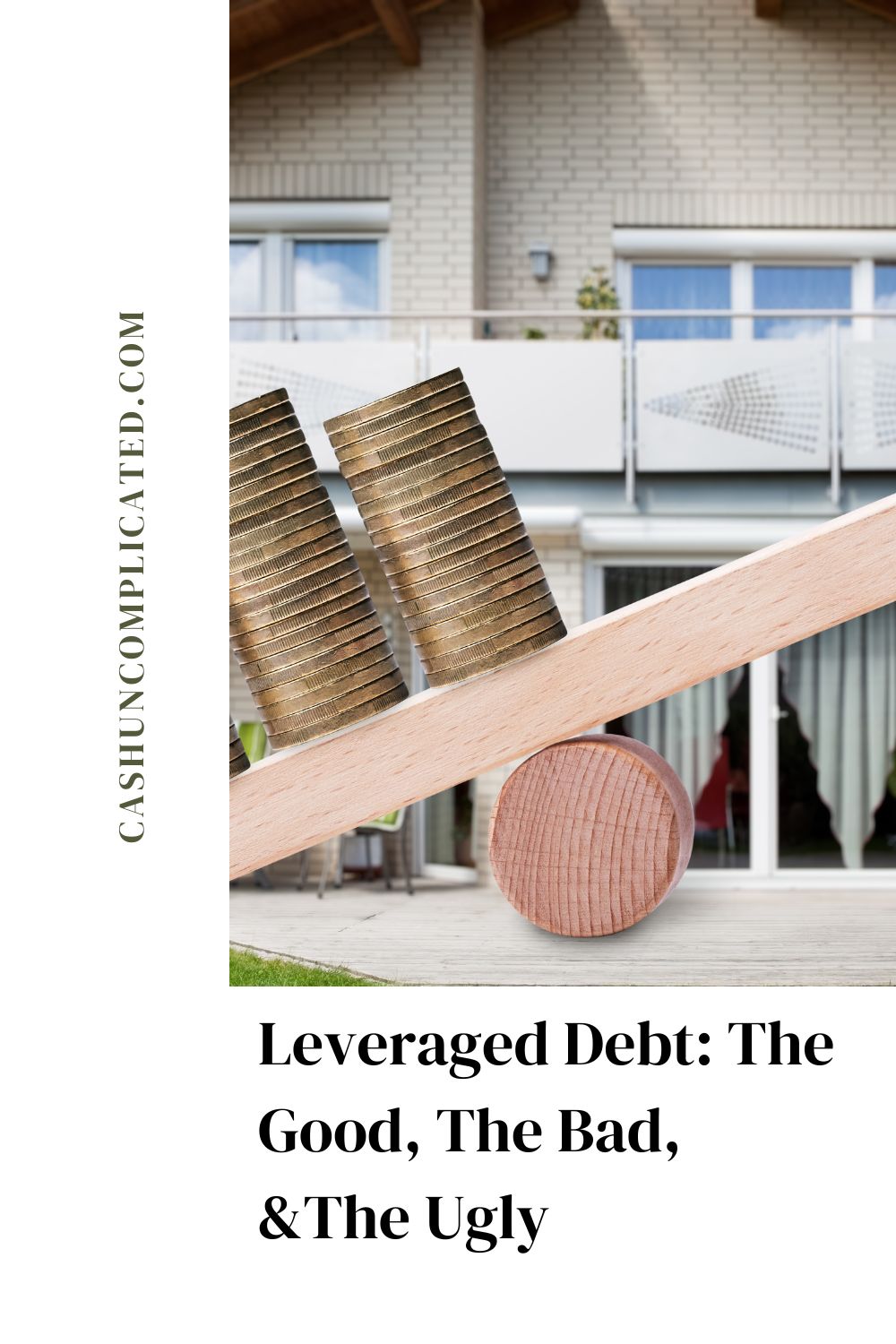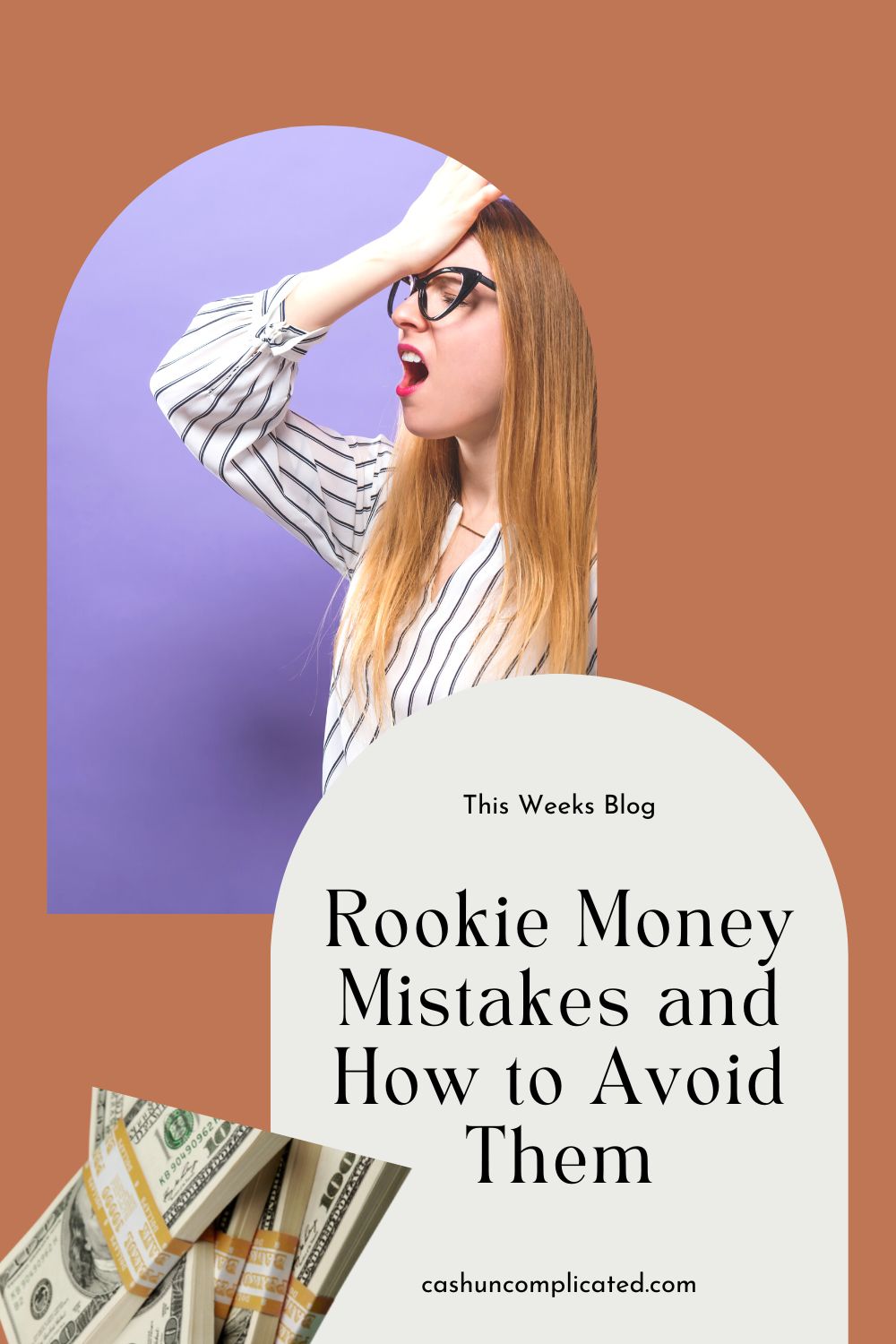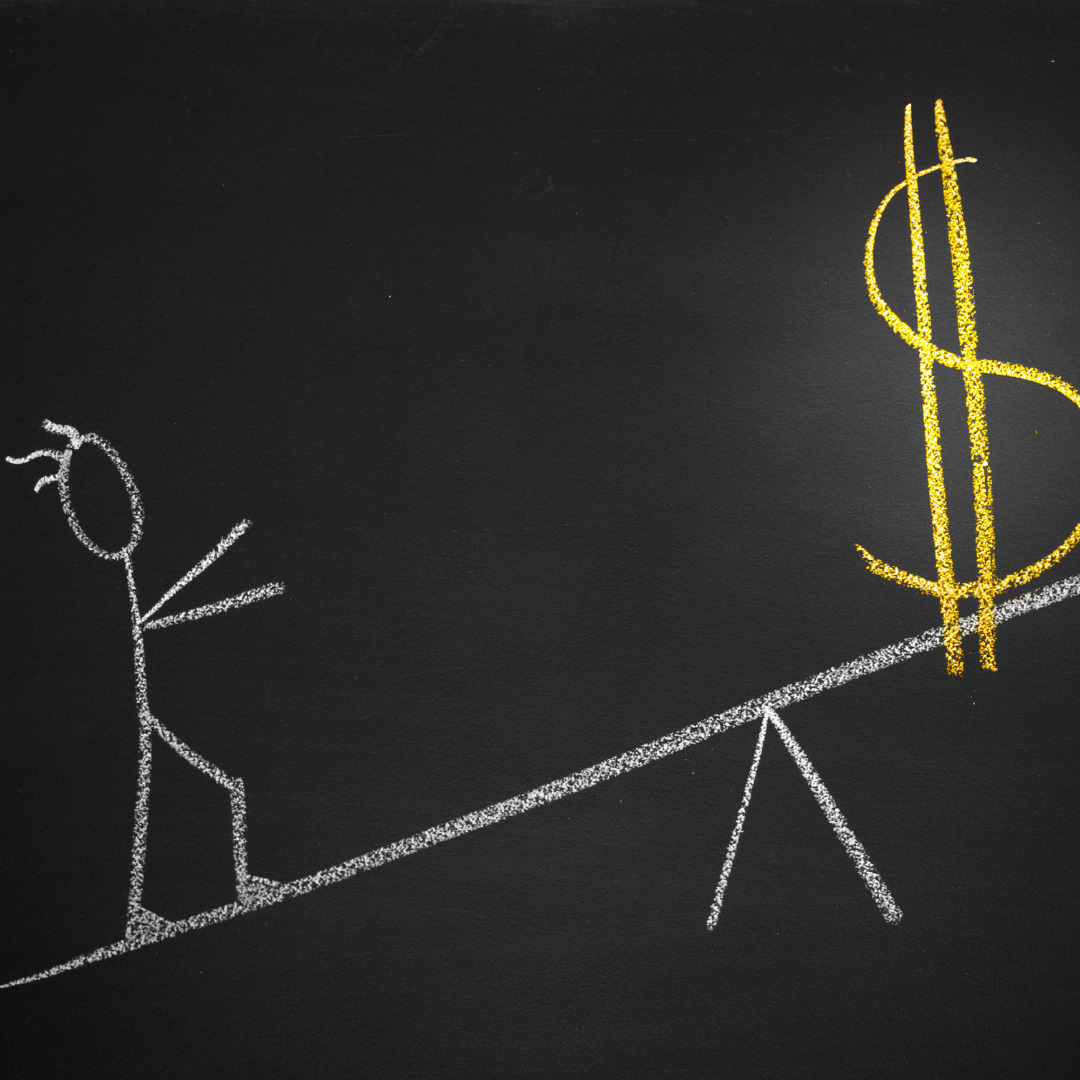There are lots of things people waste money on. Fortunately, it’s easy to not waste money. Oftentimes wastefulness occurs simply due to a lack of awareness. Once there is awareness, steps can be taken to minimize, or outright avoid, the wasteful spending.
Things People Waste Money On
Compiling a list of things people waste money on would take an endless amount of hours because the list is almost infinite. So we’ll start with 18 to get started.
Number 1: Interest from Credit Card Debt
Leading off the list of things people waste money on is interest from credit card debt. Paying interest on a credit card bill is throwing away money to the creditor. It’s also paying for purchases of the past–which can be as recent as last month or as far back as years ago. The interest never stops until the bill is paid in full.
Here’s an example. A computer purchased on a credit card for $1,200 can take years to pay off if only paying the minimum. Assuming the interest rate is somewhere between 12 to 20 percent, the final price of the computer can easily be double or more of the original purchase cost.
Number 2: Credit Card Late Fees
Second on the list of things people waste money on piggybacks off the first–credit card fees. Not quite as harmful as the interest on a high balance credit card, but harmful nonetheless.
If you have to pay the bill anyway, you might as well pay it on time. Even paying a day or two late can come with late fees between 30 and 50 dollars. There’s no rhyme or reason to pay these fees when the bill has to be paid anyway.
Number 3: Playing the Lottery
The chances of winning the lottery are not good. Scratch that–the odds are almost impossible. I’ve heard the argument that “someone has to win, might as well be me.” While it is true that people do win the lottery, the chances are about as impossible as you can get.
The odds of picking the correct number one through 60 five times in a row is beyond a longshot. If you don’t believe me, try this with a friend. Pick a number between one and 60 then ask your friend to guess it. If they guess it right, pick another number between one and 60 and ask them to guess it correctly.
And so on down the line six times in a row. That’s how hard it is to win the lottery. Chances are your friend is not going to be able to guess the correct number the first round, much less six full rounds.
Number 4: Repeating Entertainment Subscriptions
Number four on the list of things people waste money on is repeating entertainment subscriptions. What I mean by “repeating” is subscriptions that offer basically the same things. Similar movie options, shows, streaming, etc.
What usually ends up happening is one streaming service is used the majority of the time while the others are used only once or twice per month. For example, a streaming service that costs 15 dollars per month but is only watched twice per month is costing a lot more than for someone who watches that service multiple times per month.
Side note: some people feel try to get “their money’s worth” and make an effort to watch the subscription services they pay for. It’s important to see the forest for the trees here. There’s a tremendous opportunity cost to watching more streaming services beyond the cost.
That time could be spent with family, friends, personal development, or on a side hustle. Which I would argue is much more valuable than getting the most bang for your buck from streaming services.
Number 5: Morning Coffee Out
Now on to one of the most criticized concepts in personal finance: buying coffee out instead of making it at home. Yes, making coffee at home will save you money. And for the neigh sayers–yes, making coffee at home in of itself will not make you a millionaire.
But that’s for another post–back to the topic of this article of things people waste money on. Mindlessly rushing every morning to grab a quick coffee before work just because that’s what you’ve always done isn’t really enjoying the drink you’re paying for. It’s not an effective use of money. Making your own coffee at home serves the exact same purpose in that case.
Here’s where the morning coffee makes sense–if it’s something you truly enjoy and value. And maybe take your time to sip instead of drinking quickly on the commute to work. For more on the actual cost of buying coffee out, follow link to this post.
Number 6: Regularly Buying Quick Lunches
How many times have you seen or experienced this? Busy at work and lunch isn’t packed. So a quick trip is made to grab lunch somewhere before hustling back to the job site. Lunch is wolfed down before swiftly returning to work for the rest of the day.
In this scenario (which is all too common), lunch really isn’t enjoyed. A premium was paid for the convenience of a quick meal in between working. It would have been just as easy to pack lunch the night before instead of running out and grabbing lunch.
As a side note, business lunches with colleagues or prospects are a different entity. Those lunches have an upside and are part of growing the business you are in.
For a full breakdown of the real cost of buying lunch out, read this post.
Related: 6 Easy Lunch Ideas to Save You Money
Number 7: Convenience Stores
Convenience stores are in business because they are convenient. And there’s nothing wrong with that. The convenience just comes at a premium. In general, the more you’re able to plan and buy things in advance, the better off you’ll be.
For example, buying snacks at the grocery store and bringing them with you to work or on a day outing is much more cost effective than stopping at the convenience store when you want a snack or drink. A large pack of pretzels might be three to four dollars at the store while a small bag at the quick mart will probably cost two to three dollars a bag.
These savings aren’t going to make anyone rich overnight, but it’s a really easy way to save money and avoid wasteful spending.
Number 8: Dinner Takeout
The scene is familiar. Tired from a long day of work and don’t feel like cooking. Stop at a local restaurant and order some takeout. There is nothing inherently wrong about paying for this convenience now and then–but done at a high frequency it becomes a waste of money.
There are steps that can be taken to minimize the need to order takeout on a regular basis. For example:
- Make leftovers
- Cook multiple pieces of chicken at the start of the week and use it for easy meals
- Meal plan
These meals are not hard to make and don’t take much time either. With minimal effort and intentionality, it’s easy to avoid getting takeout on a consistent basis.
Number 9: Checking Account Fees
Number nine on the list of things people waste money on is one of the easiest of all to avoid: checking account fees. There are various reasons why banks charge checking account fees, these are some of the most common ones:
- Paper statements
- Not having minimum balance in account
- Not enrolled in direct deposit
If you are paying checking account fees, contact your bank to find out how you can drop these fees. Oftentimes it is really easy like eliminating paper statements or enrolling in direct deposit–which can take as little as five to ten minutes to completely eliminate the fees.
Number 10: Buying Things on Sale Because They Are on Sale
It’s great to get things on sale when you need them. The key is that you actually need the item. Too many people buy things on sale simply because they are on sale.
When you already have enough pairs of shorts and buy another on sale for $35 instead of $50, it’s not a savings of $15. It’s actually an unnecessary expenditure of $35. Or a $35 shirt on sale for $25 that you don’t need isn’t a savings of $10, it’s $25 unnecessarily spent.
Related: How I Saved $50 at the Store in Less Than 45 Seconds
Number 11: Comparable Hotels
This is a really easy way to waste money without knowing it–spending more on comparable hotels. The next time you’re looking to stay in a hotel for the night, scroll through the hotel listings on a site like Priceline or Expedia.
What you’ll notice is many of the hotels are very comparable but priced very differently. For example, a three-star hotel with ratings of 8+ is priced at $90 per night. While another three-star hotel with 8+ ratings in the same area of town is priced at $120 per night. Almost identical hotels but one is priced $30 more per night.
It’s fine to pay more for a hotel you like and value that provides a unique experience. But more often than not, it’s easy to find comparable hotels at lower prices with minimal effort.
Number 12: Car Financing
Many people finance cars without thinking twice about it. I was one of those people and wasted a lot of money. There’s an assumption in our culture that cars should be financed and that’s the end of the story.
The truth though is that financing cars adds an unnecessary expense on top of an already expensive purchase. For example, a $20,000 car (after taxes and registration) that is paid for in cash costs $20,000. But a $20,000 car financed with $2,000 down leaves $18,000 left to be financed.
At 4.5% interest over a five-year period, that’s $2,134 in interest alone. So the $20,000 car actually costs $22,134.
Number 13: Too Much Food
Number 13 on the list of things people waste money on is buying too much food. There’s nothing wrong with buying a lot of food if it can be stored, but where people run into trouble is too much food and having to throw it away.
This is especially applicable to produce and meats. It’s easy to buy too much because there might be a good sale where it seems to make sense to buy more than normal. But when you have to end up throwing away half of what you bought, it becomes a waste of money.
Number 14: The Latest Technology
Technology moves super-fast. It’s almost impossible to always have the most updated and best technology. Phones, computers, tablets–it seems like six months later there is a newer and better technology.
Trying to chase technology is in large part, wasteful. Unless you absolutely need to have the most current version, it’s better to buy new technology as needed and keep it until it’s no longer useful.
For example, I use my computer mostly for writing books and blogging. Modern technology is needed to update my website, but I don’t need the absolute newest technology. I can get away with buying a new computer every few years. There’s not a need for a new one every six months to keep up.
Number 15: Not Shopping Around for Services
I totally get this next one on the list. It’s easy to go with the first company you reach out to because there’s less effort involved. The company has already corresponded with you and all you have to do is say yes.
However, it pays to take the time to comparison shop. Especially for big ticket items. A few examples where it really pays off:
- A car issue where the original bid was $1,900 and the second and third bids were $500 less
- Water heater where installation from second company is $300 less than the original bid
- New roof where the bids are thousands apart for the same quality
In all three of these examples, it really pays to get multiple bids. Spending a couple hours extra to get extra bids and save thousands is well worth the time investment. I think of it like this: If I save $1,500 by spending two extra hours on getting extra bids, I just made $750 for my time and effort. And that’s a lot of money saved with little effort.
Number 16: Retail Therapy
Next on the list of things people waste money on is a made-up term: retail therapy. I’m not sure exactly who made this up, probably the stores so people would find an excuse to spend money.
I’m not a psychologist, but spending money to feel better probably isn’t something that is going to work long term. Sure, it feels good at the time but then the bill comes due. And then it doesn’t feel good, completely defeating the original purpose of the purchase.
If you’re feeling like spending money to feel good, take a pause and think about whether it will really make you feel better or if there are better alternatives.
Number 17: Minor Conveniences
I’m all for spending money for conveniences. For example, just the other day I went to a concert with my wife and some friends. The two best ways to get there were by trolley or by taking a rideshare service like Uber or Lyft. The trolley would have been about $20 less but taking a car saved almost an hour plus we got to the venue early with plenty of time to spare.
It was a convenience that was well worth the extra money. Where it doesn’t make sense is for minor conveniences, such as:
- Buying lunch out when it can be made at home in under five minutes
- Purchasing pre-cut fruit from the store when it takes less than a couple minutes to cut your own
- Making several trips per month to convenience stores when those items easily could have been bought in bulk with a minimal amount of planning
These minor conveniences often come with a relatively high price tag. For example, buying lunch out can cost $10 to $15 more than making your own lunch. Not such a big deal one time, but over the course of the week that adds up to over $50. And for the month, over $200.
Related: Can Packing Your Lunch Make You a Millionaire?
So for items of convenience, make sure the cost is truly worth it. If it’s worth it, take the convenience. But if it’s a minor convenience, think about the alternatives.
Number 18: Comparison Spending (Keeping up with the Joneses)
Last, but not least on the list of things people waste money on is comparison spending. When I use the term “comparison spending”, I’m referring to spending to keep up with other people. Like buying a new car because the neighbors just bought one or buying an expensive suit because a co-worker just bought one.
Otherwise known as keeping up with the Joneses. Spending money to keep up with others is an unwinnable position. There will always be people making more than you or spending more than you. Chasing that rabbit is an exercise in futility.
One of my solutions to avoid keeping up with the Joneses is to practice value-based spending, a principle I live by with great intentionality. With value-based spending, I spend on necessities and things I really value. It doesn’t matter what others are doing, or who just bought what. Value-based spending keeps me out of comparison mode and keeps the focus on what’s best for me and my family.
Conclusion
Life costs money and there are plenty of great things we can spend our money on that we value like travel, investing, an emergency fund, a house that we enjoy, etc. So it’s important to weed out the wasteful spending.
Not only to avoid wasting money, but to also have money available for the important things. Cutting out the wasteful spending is a great first step to ensure there is money for those important things.
What kinds of things do you waste money on?

